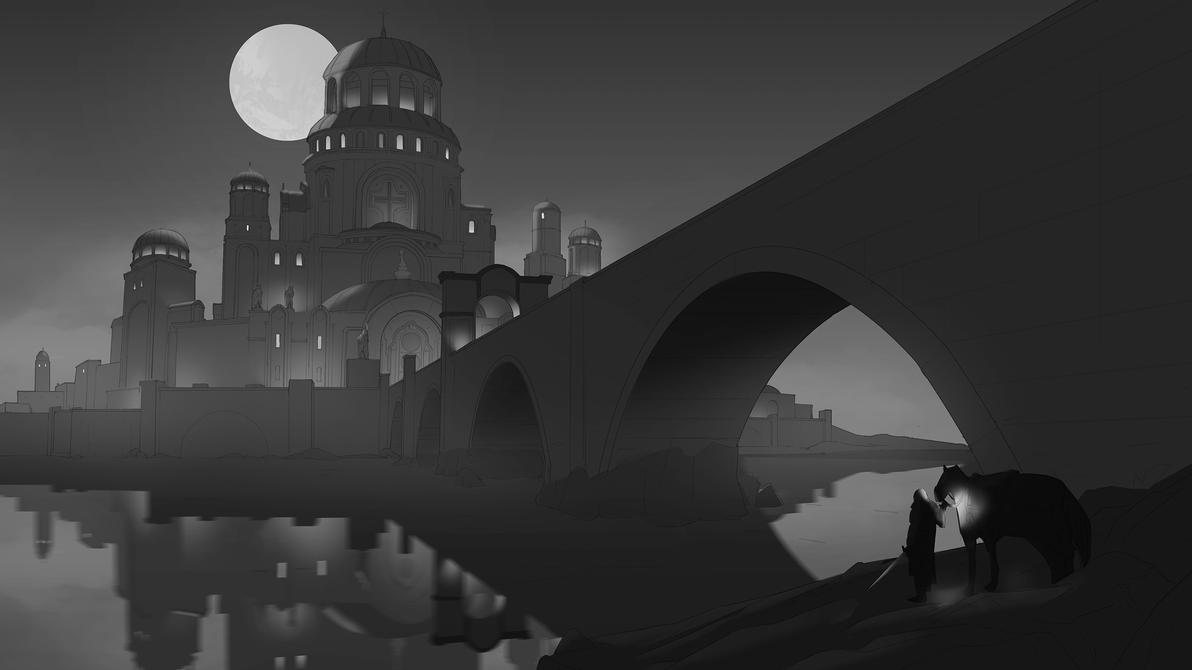 |
| I'll stop using this art as soon as I get tired of looking at it. |
OK, so let's talk about page 32 of Gods of the Fall. I'm going to start by directly addressing Monte Cook Games, author Bruce Cordell, and any other RPG publishers & writers paying attention: Do more of this.
Page 32 is a literal page from the Book of the Dead Gods. It contains a hymn to Avi the Sun, the words of Mudarak's Song, and a passage from Samiel 2:17. Page 32 is look directly into the game setting and directly at a document that a character in the game may be familiar with. More than this however Page 32 is a window into everything that the author cannot write into the text. It implies the content of an entire book in terms of style of writing and style of prose. In a game about fallen gods and new gods it gives us a glimpse at the way that the old gods were worshiped and a glimpse at how the new gods may likewise find themselves revered.
This one page is, in its own way, worth as much as the rest of the setting section. It does something that the remainder of the setting information cannot do, which is provide a sense of immersion. It does this not by telling us about the world, but showing it to us directly.
This is certainly not a new and unique way of presenting setting information. White Wolf made excellent use of such techniques in its Aeon product line back in the 90's and early 2000s by way of presenting massive in world records from the internet (or similar) or newpapers and other print media. This was then backed up by more traditional encyclopedia style world building. There are a few pages in The Strange presented as Estate case files and introductory packets. Games like Shadowrun and Interface Zero have presented their encyclopedic world information layered within the guise of matrix posts by various hackers, complete with snarky comments. I'm sure there are numerous more.
My first time through Gods of the Fall I paid this page little more heed than I did any other. I was intent on devouring the book, and wringing as much out of it as possible in the form of raw information. Page 32 stuck in my mind though and when I was planning my first session I decided to read directly from that page when I ran a scene featuring an Adherent street preacher. The effect was, I think, tremendous, as the passage sounded like something from an actual prayer book to the players.
Could I have done this on my own by writing my own poem, hymn, or such? Perhaps, though I doubt I would not have been half as successful at hitting the style, and less than that at the content. More to the point though I didn't have to. By providing in-setting material I was able to immerse the players with very little effort.
So, to my fellow players and GMs, go read page 32 again. And maybe a second time, and consider what it tells you about the setting, from inside the setting. And to the RPG writing and publishing folks out there, consider including more of this in future products. These glimpses at the setting from within can do more to immerse your readers than a dozen pages telling us about the setting from the outside.



